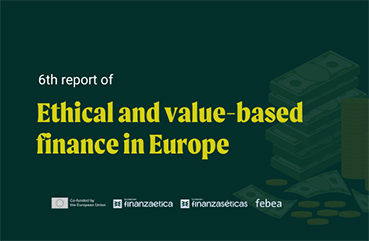The 6th Report on Ethical Finance in Europe has been released. The research, conducted by Fondazione Finanza Etica, Fundación Finanzas Éticas, and FEBEA, advocates for ethical finance as a transformative force in the financial landscape, emphasizing the importance of integrity for credibility and success.
The 6th Report highlights the challenge of upholding ethical principles in daily financial operations, particularly in the face of the “dominance of ecological and social whitewashing,” as stated by Teresa Masciopinto, President of Fondazione Finanza Etica. While many banks declare their commitment to sustainability, there is often a gap between their declarations and the actions they take. In contrast, ethical banks prioritize transparency and participation, aligning ethical principles with operational practices.
Similar to previous editions, the 6th Report aims to compare the profitability, adequacy, and financial performance of European ethical banks with the “most significant” conventional banks in Europe, directly supervised by the European Central Bank (ECB). The study examined 22 European ethical banks, members of the Global Alliance for Banking Values (GABV) and the European Federation of Ethical and Alternative Banks and Financiers (FEBEA). Additionally, data from 60 major conventional European banks were utilized.
The analysis goes beyond a mere assessment of profitability, seeking to understand how ethical banks (prioritizing social and environmental criteria over profits) operate and fit into the European banking system. The examined period spans 10 years, from 2012 to 2021, a time heavily influenced by the Covid-19 pandemic, as previously discussed in the 5th Report.
According to the report’s key findings, ethical banks consistently outperformed conventional ones in profitability (ROE and ROA) throughout most of the period. They prioritize traditional banking activities, maintaining solid capitalization and stability in the loan-to-deposit ratio.
Regarding environmental issues and climate change, ethical banks adopt comprehensive approaches and evidence-based goals, while conventional banks face harsh criticism for financing fossil fuels and using questionable metrics.
In summary, ethical banks have demonstrated consistency in ethical principles, profitability, and climate action, marking significant differences from conventional banking. Anna Fasano, President of Banca Etica, concludes: “Ethical finance is redesigning the financial landscape. In this process of redefining the system, we are aided by European institutions partnering with ethical finance, as well as other stakeholders and allies. Advancing in ethical finance requires regulatory support. Our goal is to be a trusted reference point.”







